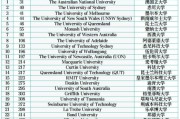东京大学的世界排名 东京大学(The University of Tokyo)被认为是亚洲最佳的大学之一,其在全球大学排名中表现优异。根据QS Wo...
2023-11-10 1759

The University of Bristol has recently announced its plans to increase the number of low-income family students in 2021. This is a big step towards creating a more inclusive environment and giving everyone equal opportunities to access higher education. In this article, we'll dive deeper into this announcement and explore the benefits it could bring to the university and its students.
Before this announcement, Bristol University had been under scrutiny for its lack of diversity and the underrepresentation of low-income students. Studies and reports have shown that the university's elitist image and high entry requirements have deterred many students from applying, especially those from disadvantaged backgrounds. This is a common issue across many universities in the UK, where students from privileged backgrounds tend to dominate the student bodies. Bristol University's recent move to address this is therefore welcomed by many.
The new plan involves the introduction of a 'Foundation Year' course, specifically designed for low-income students who may not meet the standard entry requirements for their chosen degree. This one-year course will teach academic skills, critical thinking, and research methods, in addition to providing social and pastoral support to help students transition to university life. After completing the Foundation Year, students will automatically progress to their chosen degree course at the university, without any reapplication process.
The benefits of this plan are numerous. Firstly, it opens the doors of higher education to a group of students who may have previously felt excluded or discouraged from applying. This is great news for social mobility and will help to create a more diverse and inclusive student body. It will also bring a range of perspectives and experiences to the university, enriching the learning environment for all students.
Secondly, the Foundation Year course will equip students with transferrable skills that will be useful throughout their academic and professional lives. These skills include critical thinking, problem-solving, research, and communication skills, as well as the ability to work independently and as part of a team. These are skills that are highly valued by employers and will help students to reach their full potential in their chosen careers.
Finally, this move could also have economic benefits for the university and the community. By promoting access to higher education, the university may attract more students from low-income backgrounds, who may have previously opted to work instead of studying. This could contribute to the local economy, as these students would then have better career prospects and earning potential after graduation.
Bristol University's new plan to increase the number of low-income family students in 2021 is a significant step towards creating a more inclusive and diverse higher education system. The introduction of the Foundation Year course is an innovative way to address the barriers that have historically prevented low-income students from applying to and succeeding at university. The benefits of such a plan are numerous and span beyond the individual student, academic, and economic levels. Hopefully, we will see other universities follow in Bristol's footsteps in the near future.
相关文章

东京大学的世界排名 东京大学(The University of Tokyo)被认为是亚洲最佳的大学之一,其在全球大学排名中表现优异。根据QS Wo...
2023-11-10 1759

加州大学分校排名顺序 加州大学系统是美国最著名的大学系统之一,它由十个校园组成,包括安大略加州大学、洛杉矶加州大学、圣巴巴拉加州大学、伯克利加州大学...
2023-11-10 1770

新西兰大学最新排名出炉,前三名皆为综合型大学 近日,新西兰大学最新排名出炉,前三名分别为奥克兰大学、坎特伯雷大学和维多利亚大学,均为综合型大学。这一...
2023-11-10 1746

2021年澳洲大学排名榜出炉 随着时间的推移,澳大利亚大学不断壮大和优化学科配置,为国际学生提供了更好的教育环境和丰富的学术资源。2021年,澳洲大...
2023-11-10 329

澳大利亚签证现已开始办理 澳大利亚签证是许多人梦寐以求的机会,如今,澳大利亚签证的申请已经正式开始。对于想要来澳大利亚旅游、学习或工作的人来说,这是...
2023-11-10 355

排名揭晓:全球前十大美术学院 对于许多艺术爱好者和有志于成为艺术家的人来说,选择一个好的美术学院是打开成功之门的第一步。这里我们为大家揭晓全球前十大...
2023-11-09 316

澳门大学:亚洲领先的国际化大学 澳门大学成立于1981年,是一所现代化的综合性大学,位于中国澳门特别行政区内。在其快速的20多年发展中,澳门大学已经...
2023-11-09 236

密歇根州立大学怎么样——综合评价及排名情况简介 密歇根州立大学(Michigan State University,简称MSU),是美国著名的公立大...
2023-11-09 280
发表评论